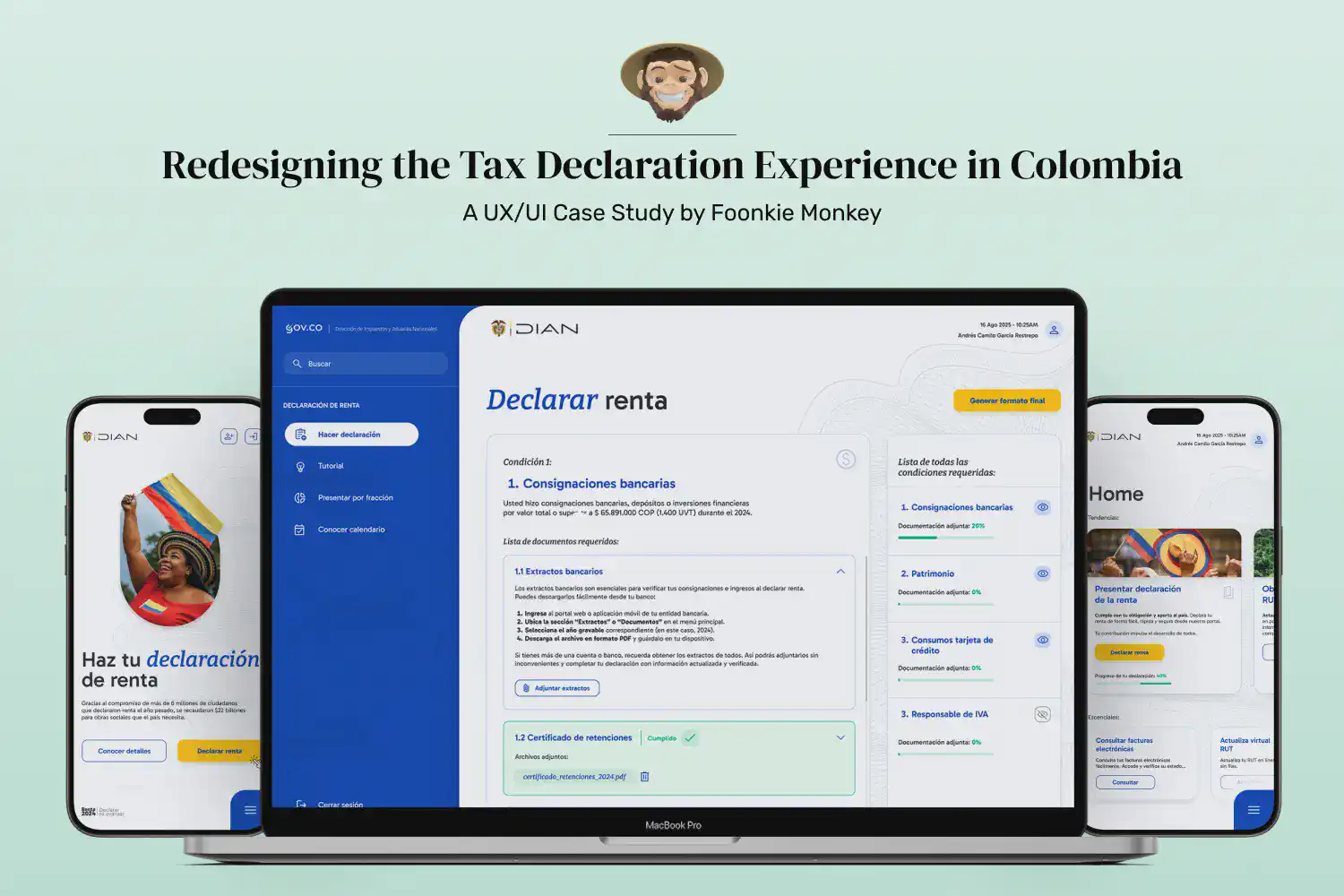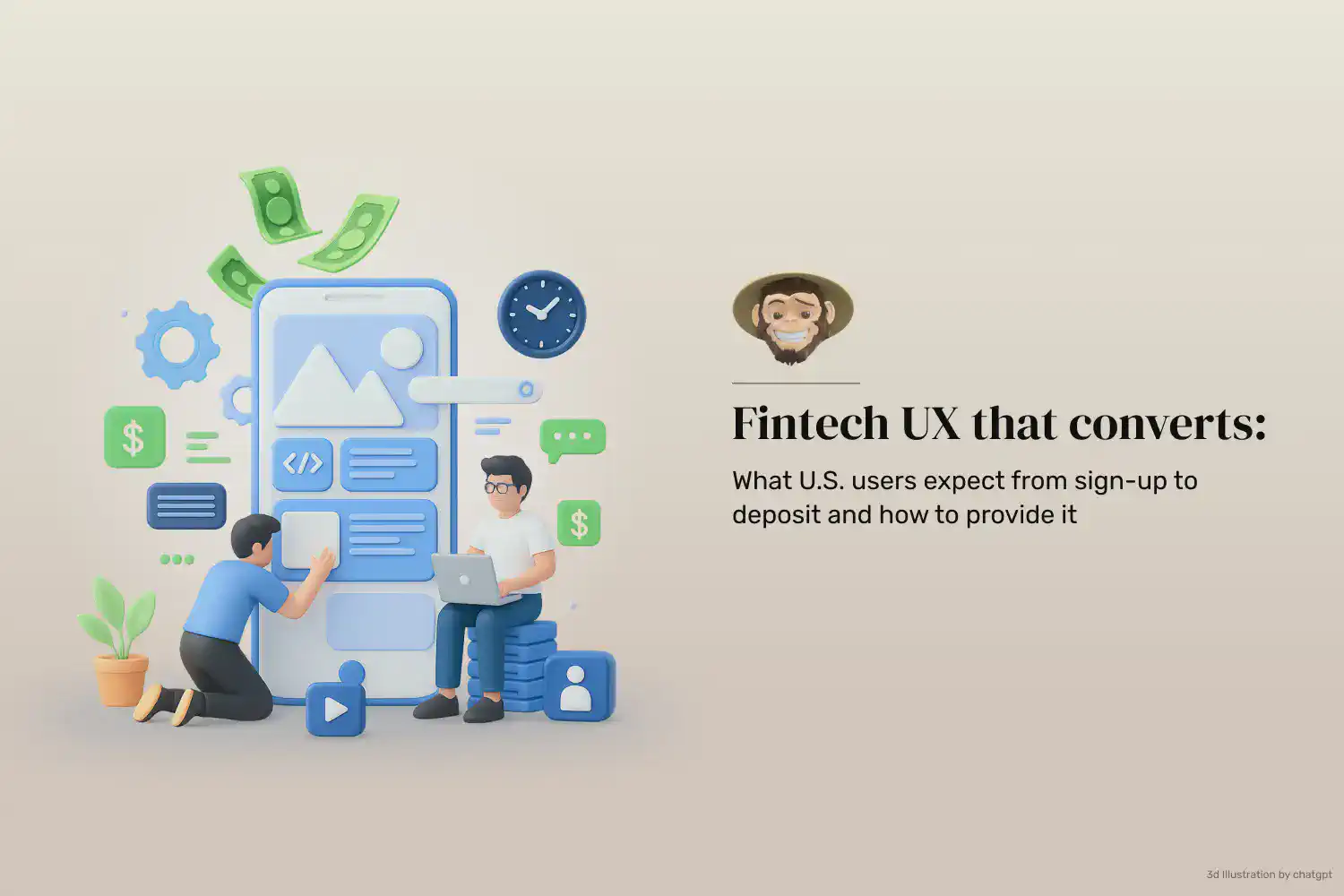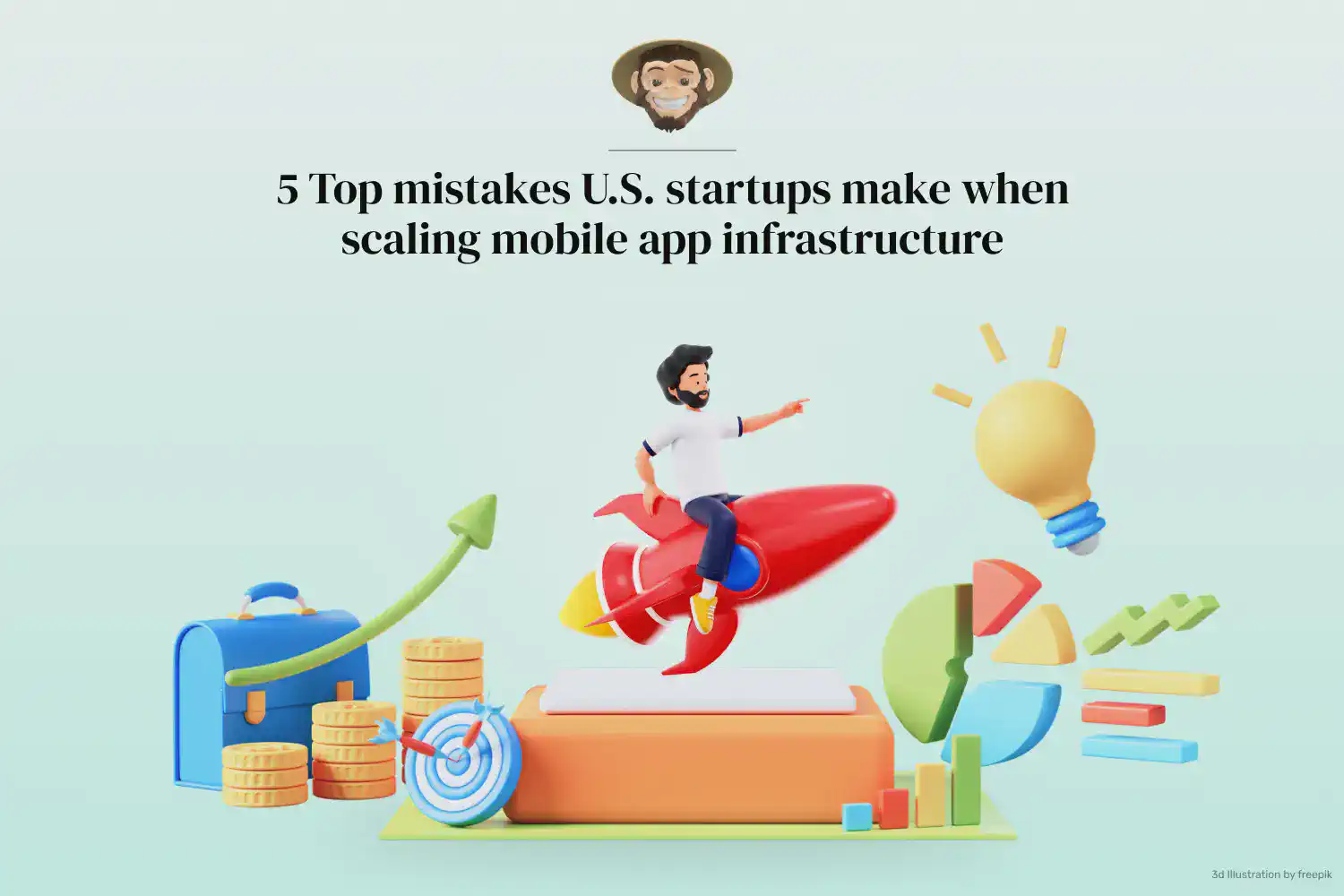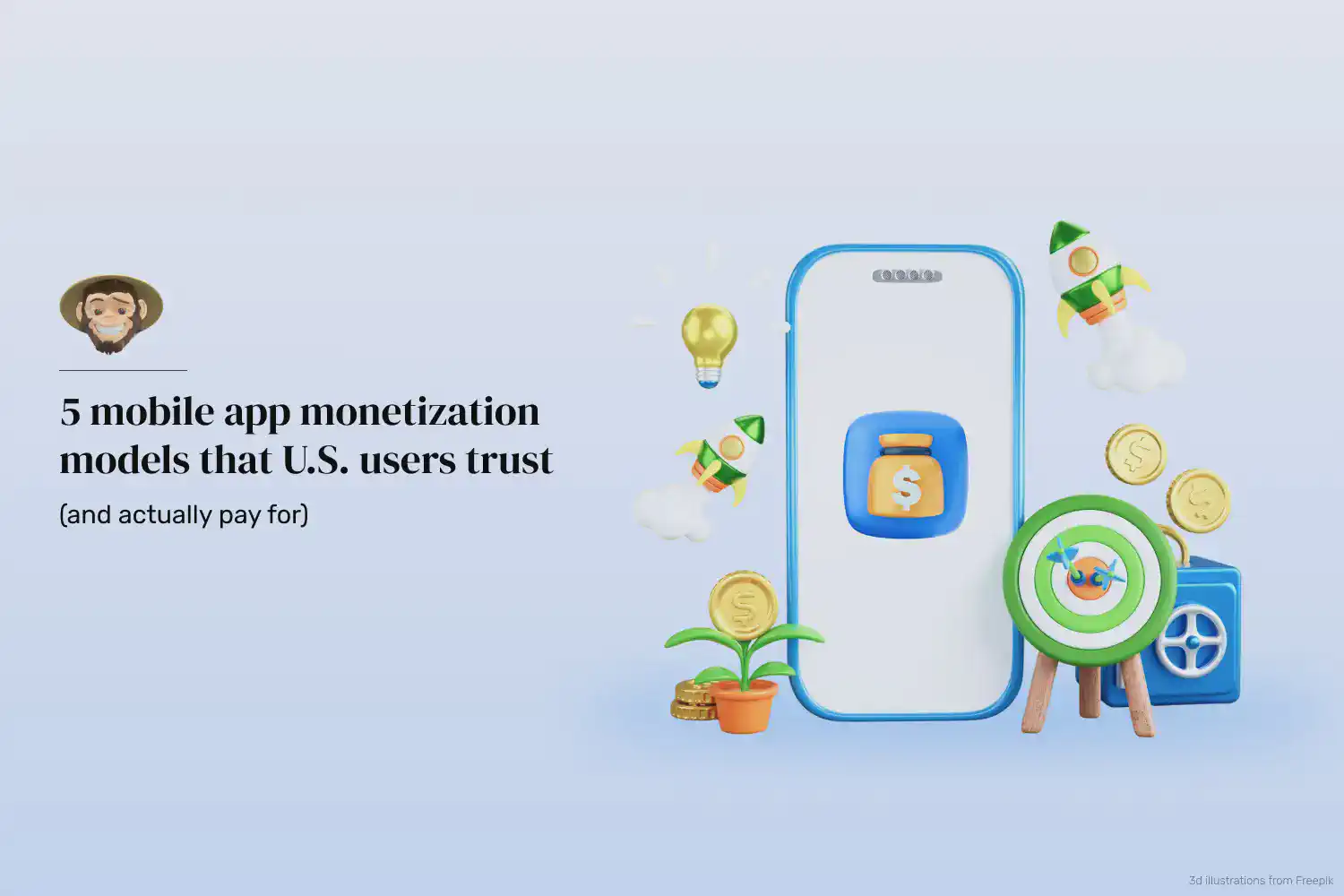The nature of work has undergone a seismic shift, powered mainly by technological advances. The gig economy has emerged as a dominant force in the labor market.
Long hours, late nights, centralized offices, never-ending commuting, and long-term contracts. Sound familiar? These terms immediately bring up memories of how working used to be a while back. Granted, that’s still the case for some, but in some scenarios, the world of work and how we perform our jobs have undergone a seismic transformation. Work has evolved into a more fluid, flexible, and decentralized ecosystem where freelance platforms, app-based driving, on-demand services, and remote digital work have collectively challenged the long-standing, rigid employment norms and have created new paths for income generation. But this transformation didn’t happen by chance; it resulted from inspiring digital innovation that has reshaped the future of work.
The rise of AI, smartphones, mobile apps, and digital payment systems, to name a few, has made it possible for some of us to work when, where, and how we choose with just an internet connection and a mobile device. And now, millions of people can earn a living or supplement their income through app-based driving, digital freelancing, online teaching, virtual assistance, and more. As a company deeply engaged in both the technological and economic dimensions of work, we want to unpack how app development has enabled this gig economy and reshaped what it means to be employed in the 21st century.
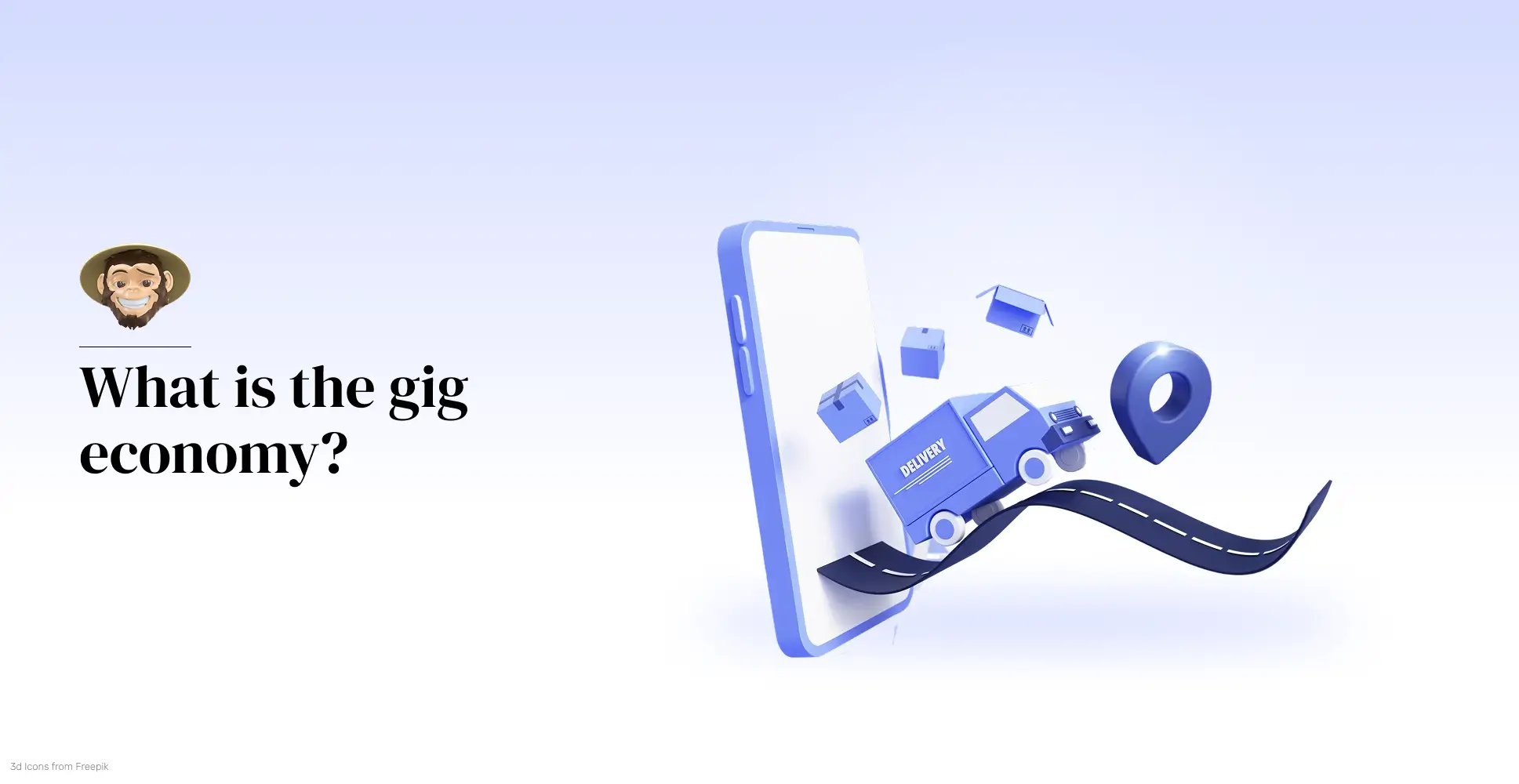
What is the gig economy?
The gig economy refers to a work scheme that is characterized by freelance jobs and short-term task-based contracts, as opposed to the traditional long-term, full-time employment models of single employers. It spans various industries and skills, ranging from ride-sharing and food delivery to home repairs and even highly specialized services such as app development, programming, and UI/UX design. It represents a fundamental shift in how we view work. It creates a more powerful and flexible model that allows people to choose when, where, and how much they work. It also gives businesses and employers access to an agile, scalable talent pool without the hassles and fixed costs of traditional hiring.
Still, with all its perks and evident growth in popularity, the gig economy didn’t happen by chance. It exists thanks to the infrastructure to support it—mobile apps and software. Without mobile and software platforms that support digital payments, data analytics, and algorithmic matchmaking, gig work’s flexible, on-demand qualities wouldn’t be possible. In other words, app development has done more than provide people access to flexible work; it has structured the ecosystem in which it operates. Let’s see how.
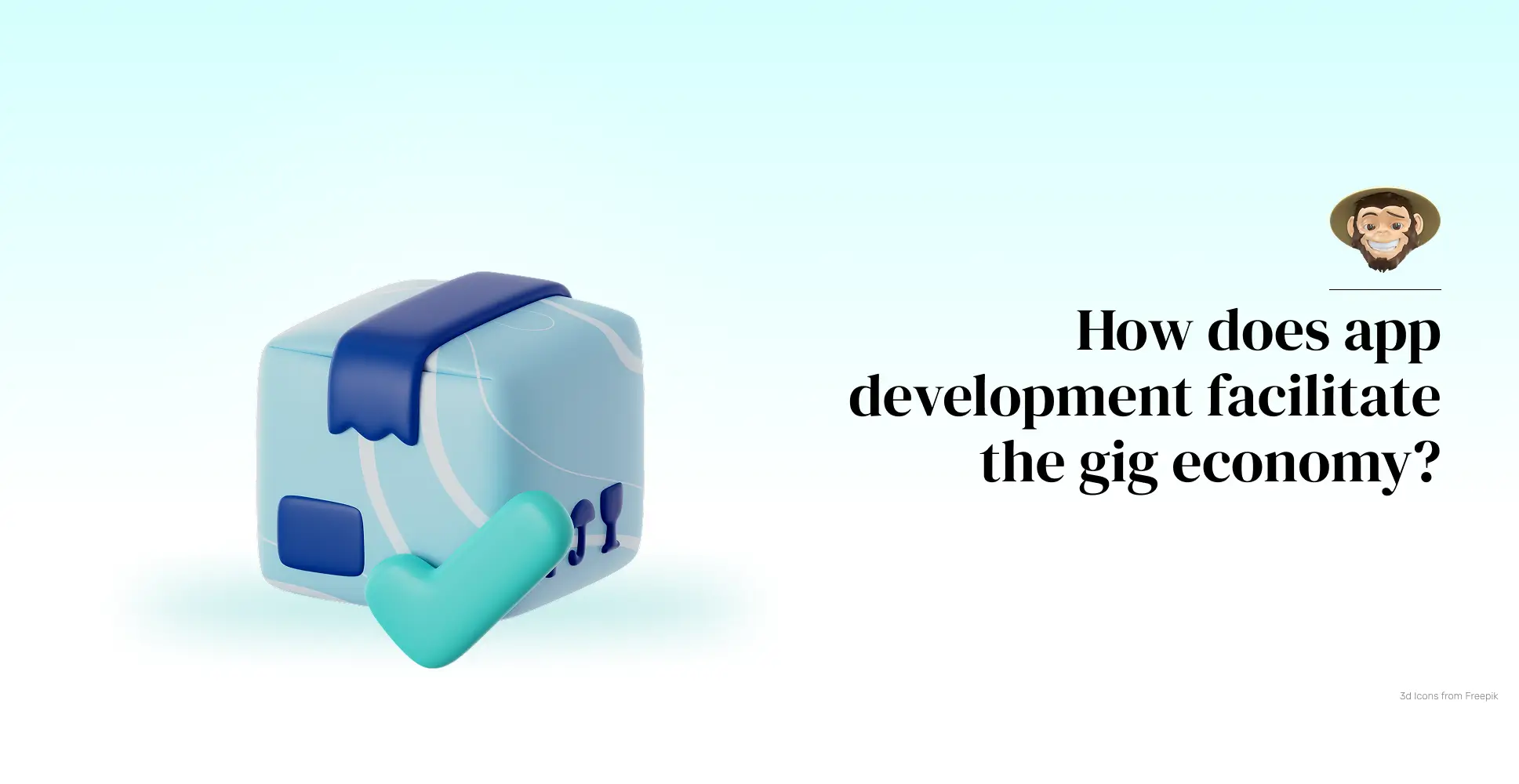
How does app development facilitate the gig economy?
1. Matching supply with demand
Mobile apps are the cornerstone of the gig economy, enabling all the services provided by marketplaces and digital platforms such as Uber, Upwork, DoorDash, and Instacart. These apps not only facilitate seamless real-time transactions between service providers and customers but also serve as highly sophisticated ecosystems, designed by developers to make the entire work experience efficient and scalable. They provide the essential backend and frontend infrastructure to connect freelancers and clients, manage payments, negotiate contracts, match people with jobs, and enforce rules. This digitalization of labor is one of this century’s most important innovations and is powered entirely by app development.
2. Enhancing portability
The widespread adoption of smartphones has transformed them into a sort of portable command center for work, and the gig economy is thriving on this. Mobile apps now serve as the primary gateway to income generation and are helping gig workers access opportunities, showcase their work, communicate with clients or peers, and receive payments; app developers have played a pivotal role in this transformation. They have built mobile applications that are highly accessible, user-friendly, scalable, secure, and efficient. As a result, the gig economy is thriving in a structured ecosystem of mobile apps that are not just functional but also inclusive, ethical, and sustainable.
3. Supporting secure online payments
One of the most transformative ways that app development has facilitated gig work is how money moves between stakeholders. If you think back to the traditional job market, payment cycles often spanned weeks or months and required some form of paperwork. Now, thanks to fintech integration, gig workers can get paid instantly, securely, and from anywhere worldwide. App developers have played a pivotal role in enabling this integration via APIs that communicate directly with digital payment systems like Stripe, PayPal, and Square, enabling instant payouts, same-day transfers, cross-border payments, tax reporting, multi-currency support, and tipping, among others. These capabilities aren’t just a luxury; they’re critical for workers relying on gig economy income to support their daily expenses and pay bills.
4. AI and personalization
Inside all the mobile apps that enable gig work, the sheer volume and variety of transactions happening every minute are staggering. Users request millions of rides and order thousands of deliveries, creating a rich data exchange ecosystem. App developers are capitalizing on this priceless data pool by leveraging AI algorithms to make their apps faster, more innovative, and more personalized with every interaction, which is critical for the wholesomeness of the user experience. Upwork, for instance, uses AI to analyze user preferences and recommend projects that align with their performance history and client ratings, increasing the likelihood of successful matches. This way, app developers can design applications that not only perform intelligent recommendations but also anticipate user behaviors, transcending generic job boards and offering an alternative that is smart, adaptive, and valuable.
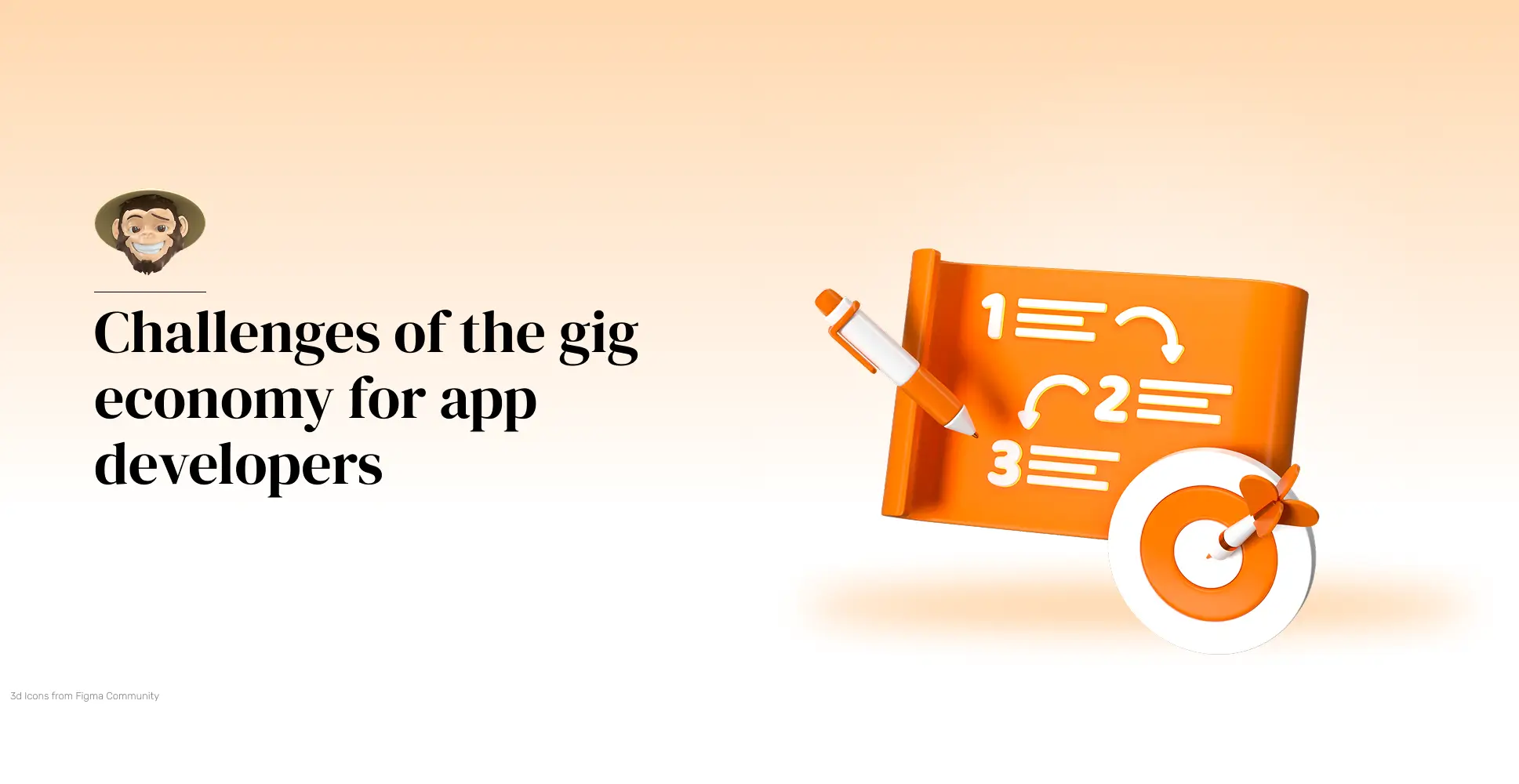
Challenges of the gig economy for app developers
1. Legal classifications of workers
Understanding the legal classifications of gig workers is crucial. They are classified as independent contractors, not regular employees. This distinction has significant implications for developers when structuring time tracking, benefits access, and communication systems. A misstep in feature design could inadvertently imply an employment relationship, leading to legal risk for the app.
2. Algorithmic biases
Algorithms are the backbone of most gig economy mobile apps, powering job-matching, ratings, pricing, and more. However, app developers have a responsibility to ensure fairness. They must be vigilant for any bias when training data and enforce transparent mechanisms that prevent issues such as favoritism toward certain user behaviors, penalization without appeal, or discrimination based on geographic, racial, or gender-based data patterns.
3. Data Privacy
Like any other mobile app on the market that collects user data, gig apps need highly robust data privacy and security measures. App developers must prioritize ethical data collection, implement strict data privacy and consent protocols, enforce compliance with regulatory bodies, secure sensitive personal and financial data, design transparent user interfaces, and build clear consent flows.

Final word
The gig economy has become a vast ecosystem of activity that has enabled millions of workers to access supplementary income to support their daily expenses. But it’s important to understand that behind every ride, every delivery, every freelance project is a team of app developers who engineered what we have come to know as gig work. They wrote the code, designed the interfaces and user experiences, and built the secure platforms that now power a multi-billion-dollar segment of the global workforce. The gig economy will undoubtedly continue to evolve as AI algorithms get more sophisticated and app developers learn more about it. One thing remains clear, though: mobile app development is the foundation of the new economy.
At Foonkie Monkey, we recognize that the gig economy is reshaping the future of work, and smart, scalable app development is what powers it. That’s why we build digital platforms that are innovative and intuitive and designed to support flexibility, fairness, and long-term growth for gig workers and businesses alike. If you’re looking to launch or optimize a gig-based app, get in touch!
